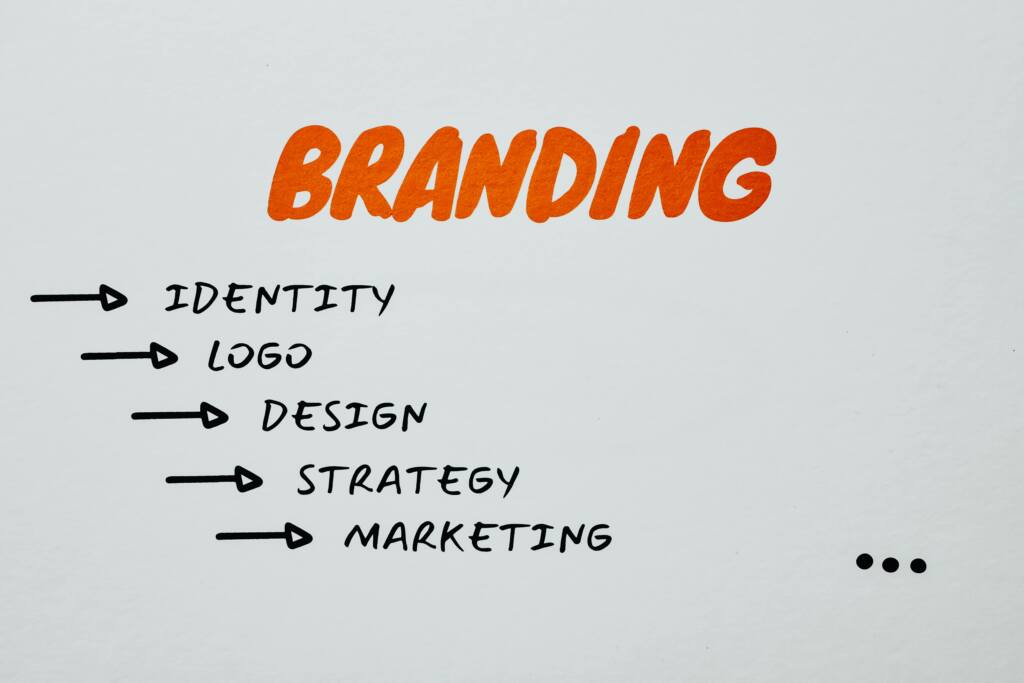Business Marketing Strategies

In today’s competitive business landscape, effective marketing strategies are crucial for driving success. The right marketing strategies can help businesses increase brand awareness, reach and engage with potential customers, and ultimately drive sales and growth. However, with the constantly evolving digital landscape, it can be challenging for businesses to keep up and master these strategies.
The aim of this article is to provide a comprehensive guide for mastering effective business marketing strategies. From understanding the different types of marketing strategies to leveraging SEO and collaborating with influencers, this guide will cover all the essential elements for creating a successful marketing strategy. By the end of this article, you will have a clear understanding of how to tailor your marketing efforts to your target audience and make the most of digital platforms to drive business growth.
With that in mind, let’s dive into the key sections of this guide and explore the world of business marketing strategies.
Understanding Business Marketing Strategies
Business marketing strategies play a crucial role in driving success for companies. A well-defined marketing strategy can significantly impact business growth by reaching and engaging with potential customers. There are various types of marketing strategies, including digital, content, social media, email, video, and influencer marketing.
Combining these strategies can have a powerful and far-reaching impact. Understanding your target audience is essential for effective marketing strategies. Conducting market research and creating customer personas can help you identify and define your target audience. Tailoring your marketing strategies to your target audience can increase their effectiveness. Leveraging SEO is crucial for driving website traffic and conversion rates. Incorporating keywords, backlinks, and on-page optimization into your marketing strategy can improve your online presence. Creating high-quality, engaging content for your target audience is a vital aspect of content marketing.
The rise of visual content and video marketing has made it even more crucial to produce compelling content. Social media has become a powerful platform for marketing. Utilizing social media platforms and tracking metrics can help you reach and engage with your target audience. Email marketing is an effective way to convert leads into customers.
Building an email list and crafting personalized and automated email campaigns can boost conversion rates. Collaborating with influencers has become a popular trend in marketing. Partnering with influencers can help reach a wider audience and build brand credibility. Continuously evaluating and adjusting your marketing strategies is crucial for mastering effective business marketing.
Identifying Your Target Audience

Understanding your target audience is crucial for the success of any business marketing strategy. Your target audience is the group of individuals who are most likely to be interested in your products or services. By identifying and understanding their needs, preferences, and behaviors, you can tailor your marketing efforts to effectively reach and engage with them.
Market research and creating customer personas are two effective methods for identifying your target audience. Market research involves analyzing data and trends to gain insights into your target audience while creating customer personas involves developing fictional profiles that represent your ideal customers.
This information can then be used to create personalized and targeted marketing strategies that resonate with your audience. Remember to continuously review and adjust your target audience as your business grows and evolves.
Leveraging SEO for Business Marketing
SEO, or Search Engine Optimization, plays a crucial role in driving website traffic and increasing conversion rates for businesses. It involves optimizing your website and content to rank higher on search engine results pages, making it easier for potential customers to find you. Incorporating SEO into your overall marketing strategy can greatly enhance your brand’s online presence and visibility.
To utilize SEO effectively, start by conducting thorough keyword research and incorporating relevant keywords into your website content and metadata. Building backlinks from reputable websites can also improve your search engine ranking. Additionally, optimizing your website’s structure and user experience can make it more appealing to search engines and users alike.
Continuous monitoring and improvement of your SEO efforts is key to staying competitive in the ever-changing digital landscape. Regularly update your keyword strategy and track the performance of your website’s SEO to ensure maximum impact and success. By leveraging SEO, you can greatly enhance your business marketing strategies and achieve your desired goals.
Crafting Compelling Content

In today’s digital landscape, content is king. It has the power to attract and engage potential customers, drive website traffic, and ultimately lead to conversions. In this section, we will discuss the importance of content marketing and provide tips for creating high-quality, engaging content for your target audience.
First and foremost, it is crucial to understand your target audience and their needs in order to create content that resonates with them. Conduct market research to gain insights into their preferences and behaviors. Additionally, creating customer personas can help tailor your content to specific segments of your audience.
When crafting content, it is important to focus on quality over quantity. This means creating content that is relevant, valuable, and well-written. Visual content, such as images and videos, also play a significant role in capturing the attention of your audience.
Another key aspect of content marketing is consistency. Consistently publishing high-quality content can help establish your brand as a thought leader in your industry and keep your audience engaged.
Using relevant keywords and incorporating SEO best practices can also help improve the visibility of your content and drive more traffic to your website.
In conclusion, crafting compelling content is essential for effective business marketing. Remember to understand your target audience, focus on quality, and be consistent in your content creation efforts. By following these tips, you can create content that not only attracts but also converts potential customers.
Utilizing Social Media for Marketing
Social media has become an essential tool for businesses to reach and engage with their target audience. With millions of active users on various platforms, it provides a powerful way to promote products and services. To effectively utilize social media for marketing, businesses should focus on creating a strong brand presence, engaging with followers, and tracking and analyzing metrics.
1. Create a strong brand presence – Your social media profiles should reflect your brand’s identity and values. Use consistent branding elements such as logos, colors, and tone of voice to build brand recognition and trust.
2. Engage with followers – Social media is a two-way communication channel. Respond to comments and messages, share user-generated content, and run interactive campaigns to keep followers engaged and invested in your brand.
3. Track and analyze metrics – Use tools like Facebook Insights and Instagram Insights to track metrics such as reach, engagement, and conversions. This data can help you optimize your social media strategy for better results.
By utilizing social media in your marketing strategy, you can connect with your target audience on a more personal level and drive business growth. Don’t underestimate the power of social media and make sure to include it in your overall marketing strategy.
The Value of Email Marketing
Email marketing is a powerful tool for businesses to reach and convert potential customers into loyal ones. With its high return on investment and ability to personalize messages, email marketing is an essential component of any successful marketing strategy.
To get started, businesses should focus on building a strong email list by offering valuable content and incentives to encourage sign-ups. Once you have a list, crafting compelling email campaigns is crucial. Personalization and automation can improve the effectiveness of these campaigns, ensuring that your messages resonate with your audience.
Tracking and analyzing email metrics, such as open and click-through rates, can provide valuable insights for optimizing your email marketing strategy. By incorporating email marketing into your overall marketing plan, you can effectively nurture leads and drive conversions for your business.
Collaborating with Influencers
Influencer marketing has become a popular and effective strategy for businesses to reach and engage with a wider audience. By partnering with influencers who have a strong following and influence in their niche, businesses can tap into their established trust and credibility to promote their products or services.
Benefits of partnering with influencers:
Increased brand awareness and exposure
Improved credibility and trust with your target audience
Higher conversion rates
Opportunities for creative and authentic content
To find the right influencers for your brand, consider your target audience and the type of content they consume. Look for influencers who align with your brand values and have a strong engagement rate with their followers.
When collaborating with influencers, it’s important to establish clear goals and expectations, as well as a reasonable budget for compensation. This partnership should also be mutually beneficial, so make sure to offer something of value to the influencer as well, such as exposure or free products or services.
Track and measure the results of your influencer collaborations to determine their effectiveness and adjust your strategy accordingly. With the right influencer partnerships, businesses can greatly expand their reach and drive success through effective and authentic marketing.
Conclusion
In today’s competitive business landscape, having effective marketing strategies is crucial for driving success. This comprehensive guide has provided an in-depth understanding of various marketing strategies, from digital and social media to email and influencer marketing. By identifying your target audience, leveraging SEO, crafting compelling content, utilizing social media, and collaborating with influencers, businesses can reach and engage with potential customers more effectively.
However, it is important to continuously evaluate and adjust these strategies to ensure maximum impact. Keep in mind the importance of personalization, automation, and tracking metrics for optimizing your marketing efforts. With the tips and insights shared in this article, businesses can master effective marketing strategies and see their growth and success soar. Invest in these strategies and see your business thrive in the digital world.
https://7thavewellnessblog.com/?p=4437
https://moz.com/
FAQs
Q: What are some key elements of a successful small business marketing strategy?
A: Some key elements of a successful small business marketing strategy include defining your target audience, creating a strong brand message, utilizing digital marketing tools, and setting clear marketing goals.
Q: How can I create an effective online marketing campaign for my small business?
A: To create an effective online marketing campaign for your small business, you can start by identifying your target audience, choosing the right marketing channels, creating engaging content, and measuring the results to optimize your strategy.
Q: Why is digital marketing important for small businesses?
A: Digital marketing is important for small businesses as it provides a cost-effective way to reach a larger audience, increase brand awareness, engage with customers online, and track the performance of marketing initiatives.
Q: What are some recommended marketing tools for small business owners?
A: Some recommended marketing tools for small business owners include social media management platforms, email marketing software, website analytics tools, and customer relationship management (CRM) systems.
Q: How can small businesses improve their brand awareness through marketing tactics?
A: Small businesses can improve their brand awareness through marketing tactics such as social media marketing campaigns, search engine optimization (SEO) strategies, influencer partnerships, and content marketing efforts.








